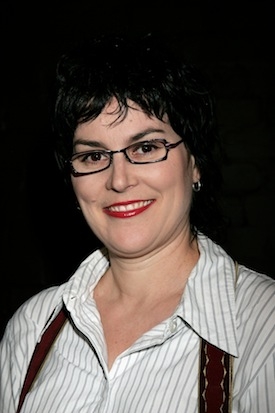‘Don’t take it for granted,’ she warned. ‘It’s one of the few places where you can hear diverse voices, different points of view; where you can understand that the world is infinitely complex.’ Alana Valentine, an Australian writer, was talking about the BBC World Service with such passion it was inspiring. You might think she would say this, wouldn’t she. After all, Valentine was giving her acceptance speech having just won first prize in the World Service’s International Radio Playwriting Competition for her radio drama The Ravens. Yet what she said was striking because you could tell she really meant it. These were not just platitudes. She had prepared what she wanted to say to be sure she would use her prize (for a play written in English as a first language) to make a point.
Valentine is unusual as a winner in that she has already had plays broadcast by the Australian Broadcasting Corporation (many of the prizes over the years have been given to writers who have never before entered a competition or written professionally) but she says she is ‘thrilled’ to be ‘part of the… rich artistic tradition of British radio making’. She admits, ‘that all sounds rather grand,’ but her sincerity was tangible. What, then, makes the World Service so special? Why must we be sure to protect it?
The competition (which is organised in conjunction with the British Council) is itself an awesome (and I mean that) feat of organisation. Almost 1,000 plays were submitted this year from 86 countries around the world. Every play is read by a team of volunteer writers, actors and directors before the shortlist is drawn up for the judges who this year included the actor Henry Goodman and the playwright Winsome Pinnock, as well as the doyenne of BBC Radio drama, Marion Nancarrow.








Comments
Join the debate for just £1 a month
Be part of the conversation with other Spectator readers by getting your first three months for £3.
UNLOCK ACCESS Just £1 a monthAlready a subscriber? Log in